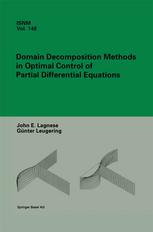

Most ebook files are in PDF format, so you can easily read them using various software such as Foxit Reader or directly on the Google Chrome browser.
Some ebook files are released by publishers in other formats such as .awz, .mobi, .epub, .fb2, etc. You may need to install specific software to read these formats on mobile/PC, such as Calibre.
Please read the tutorial at this link: https://ebookbell.com/faq
We offer FREE conversion to the popular formats you request; however, this may take some time. Therefore, right after payment, please email us, and we will try to provide the service as quickly as possible.
For some exceptional file formats or broken links (if any), please refrain from opening any disputes. Instead, email us first, and we will try to assist within a maximum of 6 hours.
EbookBell Team

4.1
80 reviewsThis monograph considers problems of optimal control for partial differential equa tions of elliptic and, more importantly, of hyperbolic types on networked domains. The main goal is to describe, develop and analyze iterative space and time domain decompositions of such problems on the infinite-dimensional level. While domain decomposition methods have a long history dating back well over one hundred years, it is only during the last decade that they have become a major tool in numerical analysis of partial differential equations. A keyword in this context is parallelism. This development is perhaps best illustrated by the fact that we just encountered the 15th annual conference precisely on this topic. Without attempting to provide a complete list of introductory references let us just mention the monograph by Quarteroni and Valli [91] as a general up-to-date reference on domain decomposition methods for partial differential equations. The emphasis of this monograph is to put domain decomposition methods in the context of so-called virtual optimal control problems and, more importantly, to treat optimal control problems for partial differential equations and their decom positions by an all-at-once approach. This means that we are mainly interested in decomposition techniques which can be interpreted as virtual optimal control problems and which, together with the real control problem coming from an un derlying application, lead to a sequence of individual optimal control problems on the subdomains that are iteratively decoupled across the interfaces.